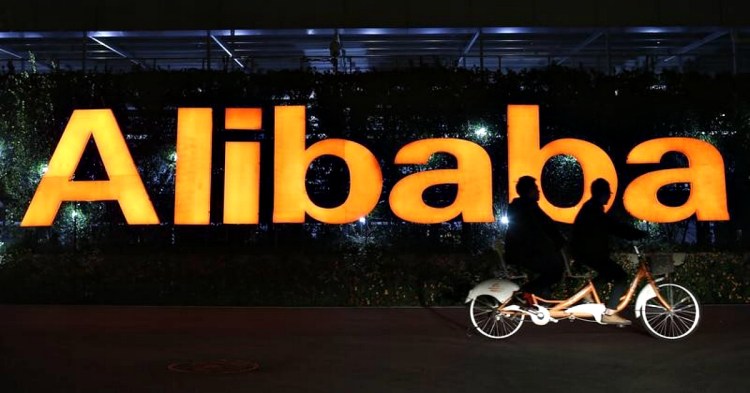Alibaba’s CEO Daniel Zhang — not to be confused with the company’s better-known founder and executive chairman Jack Ma — this week sketched out the Chinese ecommerce titan’s expansion strategy for 2016.
During a speech to employees at the company’s Hangzhou headquarters, Zhang said, “Global import, rural ecommerce, and top-tier cities are the three key battlefields for Alibaba in 2016.”
Here are the rest of his comments, as shared by Alibaba in an English-language translation:
We are going to consolidate and expand our current market, particularly by enhancing reputation, optimizing user experience and increasing our market share in first-tier cities … We are going to build our businesses around the two brands [Tmall Global and Taobao Marketplace’s niche global channel], in order to raise their awareness among customers and offer optimal user experience … In 2016, we are going to ramp up our efforts to bring quality goods to rural buyers, and deliver local produce to urban customers so the rural market can be connected to the whole country and even the whole world.
Alibaba’s 2015 year in review
Unsurprisingly, Alibaba had one heck of a busy 2015. It kicked off the year in a partnership with Tencent to launch a consumer credit rating service. That same January, it outlined a new plan to help U.S. businesses better sell in China, in what some interpreted as the beginning of a “U.S. invasion.”
Last year saw it push more seriously into supporting QR codes — its online payments platform, Alipay, has been using QR codes for in-store mobile payments since 2011. But Alibaba struggled to meet Wall Street expectations as the year kicked off, and had a tussle with the Chinese government over alleged illegal business practices.
Rumors surfaced in late January that Alibaba may have been planning to make its own gaming console, after it pumped $10 million into struggling Ouya. By March, it had launched its first U.S. cloud data center (more about Aliyun here and here) and it opened its second cloud data center in October. It also began expanding aggressively into media and entertainment, further evidenced later in the year when it bought Chinese video-streaming giant Youku Tudou in a multi-billion-dollar deal.
Yahoo was often in the headlines alongside Alibaba in 2015, with reports concerning the spin-off of its stake in the ecommerce giant (a decision it then backtracked on). By May, QR codes were back in the headlines, as Alibaba embraced new visual QR tech for its offline-to-online transactions. In July, we learned that the company was investing a whopping $1 billion to expand its cloud business into Japan, Europe, and the Middle East.
China’s economic downturn around August hit Alibaba — and fellow Chinese companies, including Tencent and Lenovo — hard. By September, however, Alibaba was trialing its own video-streaming service in what was immediately interpreted by the industry as a direct challenge to Netflix. The same month, it inked a deal with the United States Postal Service to develop international shipping solutions and enhance cross-border ecommerce between the two countries.
Coming back to payments, an Alibaba partner unveiled a $110 payments-focused smartwatch for the China market, and Alibaba itself inked a strategic investment in India’s ecommerce giant Paytm. That deal was said to be worth $680 million and left Paytm valued at around $4 billion. McDonald’s also started accepting Alipay at its restaurants across China.
Overall, 2015 saw a strong global push from the company, which is desperate to be better understood outside China. Towards the end of the year, Alibaba’s main rival, JD.com, opened its first office in the U.S. as competition between the two reached new heights. At the same time, Alibaba opened new offices in Europe, making it clear that it had no signs of slowing its international expansion.
Problems with fake goods on its online marketplace continued to plague Alibaba’s image in the West and at home, and it narrowly avoided the U.S. government’s fake goods blacklist. But as a testament to its ecommerce might, it generated an astonishing $3.9 billion in sales in the first hour of Singles’ Day. It also offered further evidence of its media intentions amid rumors that it was in talks to buy the South China Morning Post in Hong Kong (that deal closed in December).
In a soft-power highlight for the company, Alibaba founder Jack Ma interviewed President Barack Obama at the Asia Pacific Economic Cooperation (APEC) summit in Manila in November. That same month, the company was one of a handful of major tech companies that committed to investing in clean energy, alongside the likes of Microsoft, Facebook, LinkedIn, and Amazon.
Looking to the year ahead, one analyst firm pegged Alibaba’s spending power for investments and acquisitions over the next 12 months at around $38 billion. No matter what you think of the Chinese powerhouse, the world is sure to be watching it closely in 2016.
VentureBeat's mission is to be a digital town square for technical decision-makers to gain knowledge about transformative enterprise technology and transact. Learn More

